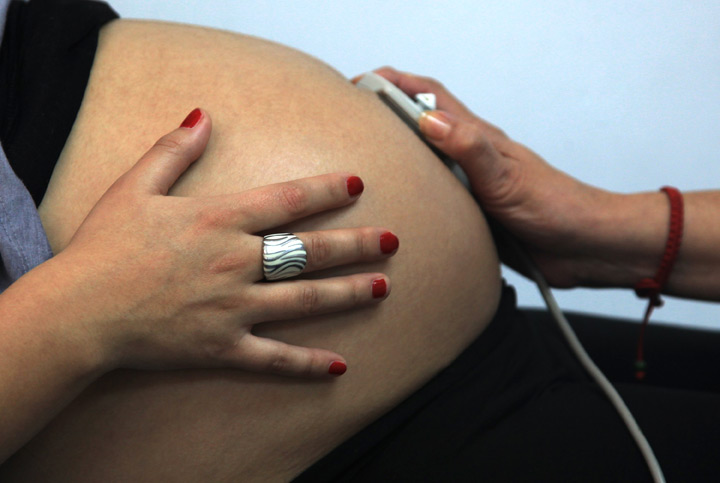There are substantial gaps in obstetrics care between First Nations and non-First Nations women in British Columbia which may contribute to the higher rates of infant mortality among the First Nations population, according to research examining more than a decade of pregnancies and births in the province.

“Across the board, in terms of the things we looked at, we found reduced levels of care,” said researcher and co-author Corinne Riddell, PhD candidate, McGill University.
Researchers examined the obstetrical medical records of all first-time mothers who gave birth in B.C. between 1999 and 2011; researchers compared care during pregnancy, labour and delivery of 215,933 total births, 9,152 of which were to First Nations women.
READ MORE: Auditor general blasts health care services on First Nations
Researchers said First Nations women were less likely to receive the following measures of care:
- Less likely to undergo early pregnancy ultrasounds,
- Had fewer visits to the doctor during pregnancy,
- Were less likely to receive an epidural or labour induction,
- Less likely to have instrumental delivery or cesarean section births.
What isn’t clear was whether the care was not offered or was unavailable, or whether First Nations women were less likely to seek out or follow up on such care.
“We cannot say at all based on this work … if it was uptake of care or the provision of care.”
What needs to be studied next is why these differences exist.
“We didn’t know before this study whether there was lower care or not and so now we can say, OK First Nations women do have lower level of care, receive less care, than the general B.C. population but we don’t know why,” said Riddell.
READ MORE: Saskatoon Health Region expanding First Nations health services
Researchers noted that many First Nation women live in remote areas and the differences in care were adjusted for where the women lived. Also of note, First Nations women were found to be seven times more likely to have a baby during their teens, had a higher likelihood of preterm birth, and were less likely to give birth after 41 weeks.
“The results of this research was surprising,” said Dr. Evan Adams, the B.C. First Nations Health Authority‘s chief medical officer. “Care services for First Nations need to be looked at, and looked at again to make sure that we’re reaching everyone that we can so that we’re getting as best outcomes as we can.”
Adams said first time mothers in particular can be harder to engage, and that mistrust of medical procedures is sometimes a factor. He acknowledged geographic obstacles often pose a problem, but said it’s not an excuse for lack of care.
“I’m concerned that there may be other factors than simply geographical ones that stop people from going into care,” Adams said.
“One of them might be cultural mistrust, some of it might be historical — have they traditionally gone to those kinds of places with an expectation of good care. Are the healthcare professionals culturally competent, can they speak to them in a way that’s reassuring and respectful and entices them to engage in care.”
The health authority has recently started a doula program for First Nations mothers, noting how vital trust and communication is in administering proper care.
“Babies are these innocent gifts that we should give every chance to, all of us,” Adams said. “And it shouldn’t just be given to some and not to others.”
Riddell said the research was prompted by “the established, heightened rate of stillbirth and infant mortality in aboriginal Canadians compared to the general population. So that’s of course of concern, so we wanted to establish if there is also lower levels of care in First Nations women.”
READ MORE: New report highlights racism in health care
According to Health Canada, studies have suggested the infant mortality rate for the First Nations population to be double that of the general population, however there is not enough firm data to be sure.
“Unfortunately, current Canadian data systems fail to capture a significant number of First Nations infant deaths, resulting in incomplete data on this important indicator — it is therefore not possible to report infant mortality for First Nations populations in Canada,” the health agency states.
The findings, co-authored by Riddell, Jennifer A. Hutcheon PhD, and Leanne S. Dahlgren MD MHSc, were published Monday in the Canadian Medical Association Journal (CMAJ).


Comments